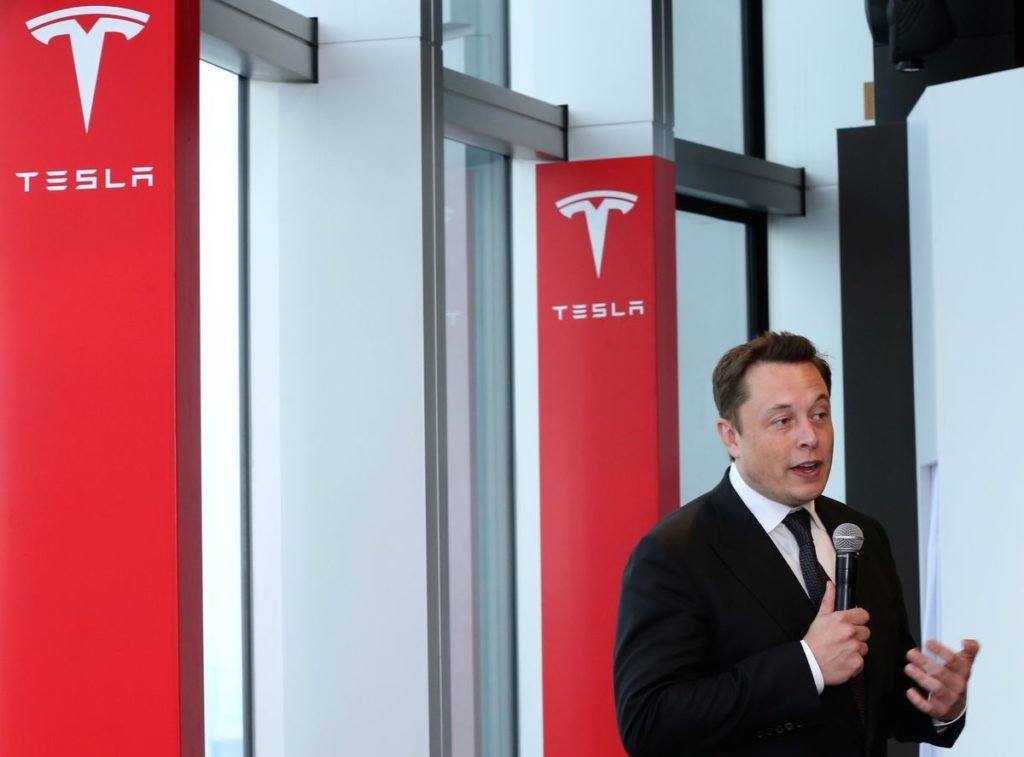
Elon Musk is finally offering more details on his bombshell tweet that he had “funding secured” to take Tesla Inc. private. It’s unlikely to get U.S. regulators off his back.
Market uncertainty over whether Musk really had lined up the billions of dollars he’d need has led to wild trading in the electric-car maker’s shares ever since his Aug. 7 tweet. In a blog post Monday, Musk sought to clarify by saying that Saudi Arabia’s sovereign wealth fund had been urging him since the beginning of 2017 to take Tesla private.
Read More: Musk Says ‘Funding Secured’ Claim Sparked by Saudi Meetings
Musk’s elaboration doesn’t wash away the investor confusion he triggered a week ago by failing to provide evidence that he had financing. Without more information, investors were left guessing at how far along negotiations on a bid had progressed. Musk’s fresh disclosure might even help the Securities and Exchange Commission show that his initial tweet was misleading, lawyers said.
“A cautious lawyer would have said you shouldn’t have said ‘funding secured’ unless you had a commitment letter,” said Keith Higgins, a Ropes & Gray partner who previously led the SEC’s corporation finance unit. “Entrepreneurs speak like this frequently but when you’ve got billions of dollars of stock trading, it’s perhaps a good idea to choose your words a little more carefully.”
Can Elon Musk Tweet That? The SEC Is Digging in: QuickTake
John Coffee, director of the Center on Corporate Governance at Columbia Law School, agreed. He said Monday’s post indicates Musk was being overly bullish last week, potentially increasing his vulnerability in any SEC investigation.
“He clearly had not secured funding at the time of his tweet — he concedes that obliquely,” Coffee said.
The SEC began scrutinizing Musk’s tweet almost immediately after it was posted, adding to questions the regulator was already asking about Tesla’s public pronouncements on manufacturing and sales targets, people familiar with the matter said last week.
Even if Musk succeeds in taking the company private, the agency will likely keep reviewing whether certain disclosures might have violated securities laws. Areas the SEC may dig into are Musk’s communications with the Saudi fund and why he waited so long to try to explain things to shareholders. In his Monday blog, he wrote that the Saudi Kingdom’s Public Investment Fund recently bought a 5 percent stake in the company and a July 31 meeting left no doubt that it could close a deal on a Tesla buyout.
SEC spokesman Ryan White declined to comment on Musk’s latest statement, while Tesla officials didn’t immediately respond to a request for comment.
Deliberate SEC
Some investors have already made up their minds that Musk bent the rules and have accused him and Tesla of manipulating the company’s stock price in lawsuits filed since Aug. 10.
The SEC will be much more deliberate in determining whether Musk or the company engaged in misconduct, said John Reed Stark, who was previously an attorney in the agency’s enforcement division. Vague or confusing statements don’t necessarily amount to securities fraud, so the SEC will try to assess his state of mind at the time of the tweet and his objective in posting it, said Stark, who’s now a senior lecturer at Duke University Law School.
“You need to prove an intent to artificially inflate or deflate Tesla stock, typically with evidence of an ironclad false statement,” Stark said.
Jill Fisch, a co-director for University of Pennsylvania Law School’s Institute for Law and Economics, said it’s far from black and white that Musk engaged in wrongdoing. It’s reasonable to believe that Musk could get a deal like this done, she said.
“He didn’t say a deal was secured,” Fisch said. “There is a big space between, ‘I have the funding to do some sort of deal,’ and ‘the deal is actually going to happen.’”
Misleading Statements
Generally, the SEC considers statements by executives to be material information that have to be true. While Musk made clear Monday that he believes the possibility of a deal is genuine, he made an interesting comment about whether he was speaking as Tesla’s chief executive officer in his tweet.
“To be clear, when I made the public announcement, just as with this blog post and all other discussions I have made on this topic, I am speaking for myself as a potential bidder for Tesla,” he wrote.
That distinction probably won’t get Musk out of hot water with regulators, said Jonathan Macey, a professor at Yale Law School.
“There’s no exception to the anti-fraud provision,” Macey said. “Even if you’re just a shareholder, if you make a materially misleading statement, you’re liable.”
Recommended for you
